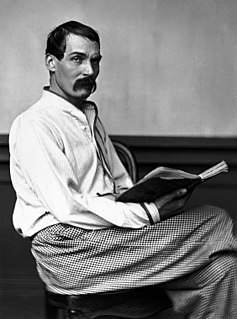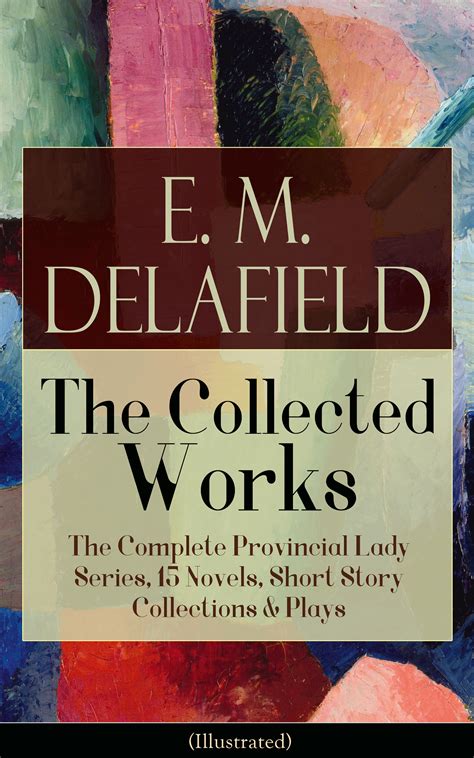A Quote by Jean Rhys
Not that she objected to solitude. Quite the contrary. She had books, thank Heaven, quantities of books. All sorts of books.
Related Quotes
The difficulty will be to keep her from learning too fast and too much. She is always sitting with her little nose burrowing into books. She doesn't read them, Miss Minchin; she gobbles them up as if she were a little wolf instead of a little girl. She is always starving for new books to gobble, and she wants grown-up books--great, big, fat ones--French and German as well as English--history and biography and poets, and all sorts of things. Drag her away from her books when she reads too much.
I remember one letter from a girl in a midwestern town who read one of my books and thought she had discovered it- that no one had ever read it or knew about it. Then one day in her local library she found cards for one or two of my other books. They were full of names- the books were borrowed all the time. She resented this a bit and then walked around the town looking in everybody's face and wondering if they were the ones who were reading my books. That is someone I write for.
[Shahrazad] had perused the books, annals and legends of preceding Kings, and the stories, examples and instances of by gone men and things; indeed it was said that she had collected a thousand books of histories relating to antique races and departed rulers. She had perused the works of the poets and knew them by heart; she had studied philosophy and the sciences, arts and accomplishments; and she was pleasant and polite, wise and witty, well read and well bred.
I'd finished the first two [books] and they were going to to be published, and [editor] said, "We need you to write a summary that will drive people to these books." And it took forever. I couldn't think of a thing to say. I looked at the back of other children's books that were full of giddy praise and corny rhetorical questions, you know, "Will she have a better time at summer camp than she thinks?" "How will she escape from the troll's dungeon?" All these terrible, terrible summaries of books, and I just couldn't.
Mirabelle replaces the absent friends with books and television mysteries of the PBS kind. The books are mostly nineteenth-century novels in which women are poisoned or are doing the poisoning. She does not read these books as a romantic lonely hearts turning pages in the isolation of her room, not at all. She is instead an educated spirit with a sense of irony. She loves the gloom of these period novels, especially as kitsch, but beneath it all she finds that a part of her indentifies with all that darkness.
She said it out loud, the words distributed into a room that was full of cold air and books. Books everywhere! Each wall was armed with overcrowded yet immaculate shelving. It was barely possible to see paintwork. There were all different styles and sizes of lettering on the spines of the black, the red, the gray, the every-colored books. It was one of the most beautiful things Liesel Meminger had ever seen. With wonder, she smiled. That such a room existed!
Only idiots or snobs ever really thought less of 'genre books' of course. There are stupid books and there are smart books. There are well-written books and badly written books. There are fun books and boring books. All of these distinctions are vastly more important than the distinction between the literary and the non-literary.
The rest, with very little exaggeration, was books. Meant-to-be-picked-up books. Permanently-left-behind books. Uncertain-what-to-do-with books. But books, books. Tall cases lined three walls of the room, filled to and beyond capacity. The overflow had been piled in stacks on the floor. There was little space left for walking, and none whatever for pacing.
Her library would have been valuable to a bibliophile except she treated her books execrably. I would rarely open a volume that she had not desecrated by underlining her favorite sections with a ball-point pen. Once I had told her that I would rather see a museum bombed than a book underlined, but she dismissed my argument as mere sentimentality. She marked her books so that stunning images and ideas would not be lost to her.
The books in Mo and Meggie's house were stacked under tables, on chairs, in the corners of the rooms. There where books in the kitchen and books in the lavatory. Books on the TV set and in the closet, small piles of books, tall piles of books, books thick and thin, books old and new. They welcomed Meggie down to breakfast with invitingly opened pages; they kept boredom at bay when the weather was bad. And sometimes you fall over them.
Forever, reading has been central, the necessary fix, the support system. Her life has been informed by reading. She has read not just for distraction, sustenance, to pass the time, but she has read in a state of primal innocence, reading for enlightenment, for instruction, even. ... She is as much a product of what she has read as of the way in which she has lived; she is like millions of others built by books, for whom books are an essential foodstuff, who could starve without.







































